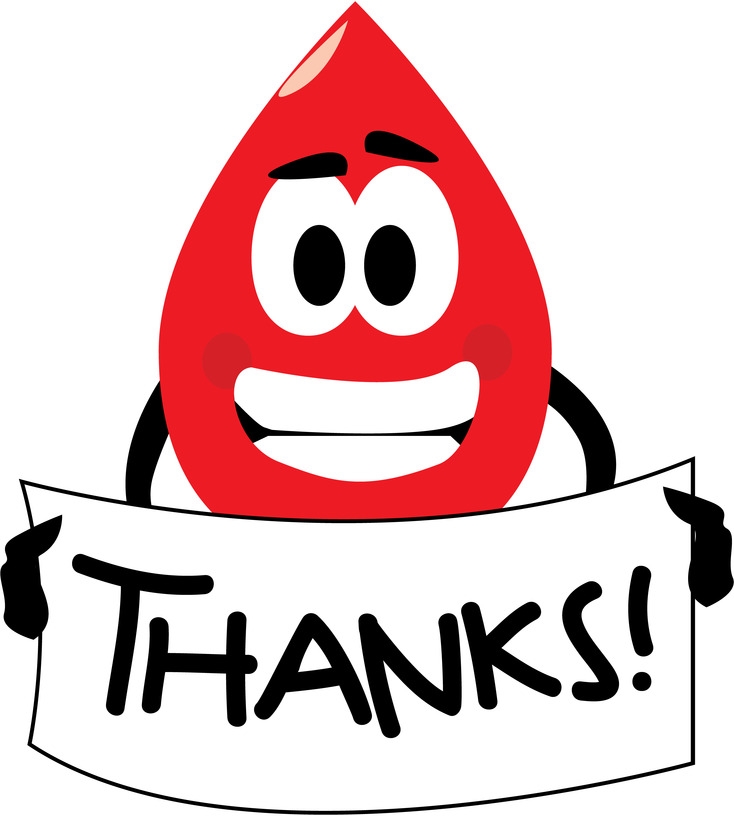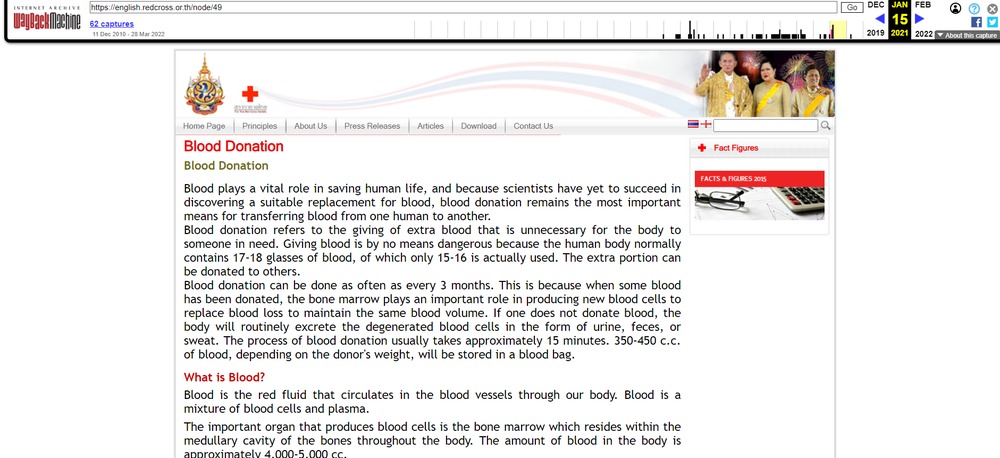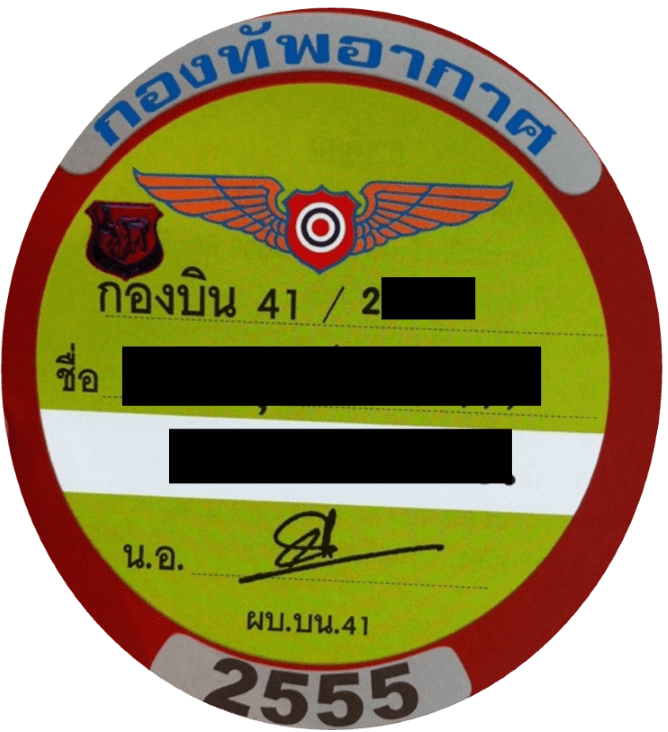Blood Donation Donor Eligibility Red Cross Blood Bank Chiang Mai
Blood Donation Donor Eligibility
Blood Donation THIS TEXT WAS COPIED FROM THE REMOVED PAGE FROM THE RED CROSS THAILAND WEBSITE – ORIGINAL PAGE IS THIS LINK.
Blood plays a vital role in saving human life, and because scientists have yet to succeed in discovering a suitable replacement for blood, blood donation remains the most important means for transferring blood from one human to another. We need to make sure of our blood donation donor eligibility
Blood donation refers to the giving of extra blood that is unnecessary for the body to someone in need. Giving blood is by no means dangerous because the human body normally contains 17-18 glasses of blood, of which only 15-16 is actually used. The extra portion can be donated to others.
Blood donation can be done as often as every 3 months. This is because when some blood has been donated, the bone marrow plays an important role in producing new blood cells to replace blood loss to maintain the same blood volume. If one does not donate blood, the body will routinely excrete the degenerated blood cells in the form of urine, feces, or sweat. The process of blood donation usually takes approximately 15 minutes. 350-450 c.c. of blood, depending on the donor’s weight, will be stored in a blood bag.
What is Blood?
Blood is the red fluid that circulates in the blood vessels through our body. Blood is a mixture of blood cells and plasma.
The important organ that produces blood cells is the bone marrow which resides within the medullary cavity of the bones throughout the body. The amount of blood in the body is approximately 4,000-5,000 cc.
Blood components and important functions:
1. Blood cells
Blood cells make up approximately 45% of total blood volume which are categorized in 3 types:
• Red blood cells are responsible for transporting oxygen to allow the cells to transform to energy and remove carbon dioxide from the body when breathing out. These cells live in blood circulation for about 120 days
• White blood cells are responsible for destroying pathogens and protecting the body by creating immunity. Within the blood cell, there is approximately 4 – 10×109/microliter of white blood cells. There are many types of white blood cells. The lifespan of white blood cells ranges from 6 hours to 20 years, depending on the type of white blood cells
• Platelets help your body form clots to stop bleeding at the point of rupture of blood vessels. Platelets can last for about 7 days.
2. Plasma
Plasma is a clear yellow fluid that consists of proteins such as Albumin, Globulin, Immunoglobulin, blood clotting factors, etc. Plasma is important in maintaining the amount of water inside the blood vessels, resisting germs and helping blood to clot. Plasma has approximately 55% of the total blood.
The need for blood
1. Patients with acute blood loss, including
• Accidents
• Surgery
• Postpartum hemorrhage
• Gastrointestinal bleeding
2. Patients with blood disease, including
• Thalassemia
• Anemia from other causes
• Thrombocytopenia
• Inadequate production of clotting factors (hemophilia)
The amount of blood that can be donated at each blood donation is 350 – 450 C.C. per time depending on the body weight of the donor, accounting for 10 -12% of the total blood in the body, which is not harmful to blood donors and can donate every 3 months.
Blood donation donor eligibility
1. Age 17 – 70 years old with excellent physical health with first donation prior to 60th birthday.
1.1 Blood donors who are aged 17 years must have a consent letter from a parent or guardian
1.2 Regular blood donors can donate until the age of 70 years
Donors older than 60 – 65 years can donate every 3 months (able to donate at the National Blood Center and blood drives)
Donors older than 65 – 70 years can donate every 6 months (able to donate only at the National Blood Centre as further checking on the completion of the blood cells before donation is required)
2. Weigh more than 45 kg
3. Not sick or taking medication, such as antibiotics. In case of taking antibiotics, the donor must stop the medication for at least 7 days before donation.
4. No teeth extraction, filling, scraping, tartar and root canal treatment during the past 3 days
5. Abstain from alcoholic beverages during the past 24 hours.
6. No medical history of hepatitis B virus or hepatitis C virus infection
7. No medical history of heart disease, liver disease, lung disease, blood disease, cancer or bleeding and difficulty to stop bleeding.
8. No tattoo or skin puncture such as navel piercing, nose piercing etc. within the past of 12 months
9. No history of drug addiction or just acquitted within 3 years
10. No medical history of illness, that required to receive blood of others from or in England between 1980-present.
11. Never resided in England between 1980-1996, for an accumulated total of 3 months or more. Or residing in a European country during 1980-present for cumulative duration of 5 years.
12. Blood donors who has undergone major surgery should not donate blood for 6 months. Donors who undergone small surgery should not donate blood for 7 days. If the donor has received blood from previous treatment, should refrain from donating blood for 1 year.
13. No risky sexual behavior such as having sex with other person other than their partner or same-sex sexuality.
Preparation: Before-After
Preparation before donating blood
· Donors must get enough sleep the day before donating blood
· Donors must be in excellent health and not taking any antibiotics
· Donors must eat prior to donating. Donors must refrain from eating high cholesterol food such as steamed rice with chicken, coconut milk, fried and sweet food, etc. These foods will make the color of the plasma turn into a blurry, opaque white, which cannot be used.
· Donors must drink 3-4 glasses of water followed by fruit juice, milk, and sweet drinks to increase the amount of blood flow in the body. It will also help protect side effects after the donation such as weariness and dizziness.
· Refrain from drinking alcohol 24 hours prior to donating blood.
· Refrain from smoking before and after donating blood for 1 hour so the lungs can produce good blood.
During the donation
· Donors are advised to wear a shirt that doesn’t have tight sleeves and can fold up above the elbow 3 inches.
· Choose the arm where the Black blood vein is clearly visible. This way, the blood will be able to flow constantly into the bag. The area of the skin that is punctured should not have rashes or bruises. If you are allergic to the antiseptic like alcohol, please inform the nurses.
· Donors must be calm, not afraid, or scared.
· Donors must not chew gum or candy while donating blood.
· During the donation of blood, donors should squeeze the rubber ball constantly to let the blood flow. If donors have abnormal conditions such as dizziness, symptoms of fainting, numbness, please inform the nurses in the area.
· After donating blood, rest on the bed DO NOT IMMEDIATELY GET OFF because this may cause dizziness that can lead to fainting. Rest for a while until you feel better then consume food and drinks provided.
After the donation
· Donors are advised to drink the water provided and drink more water than usual for one day.
· Donors must refrain from going into saunas or exercising that produces a lot of sweat. Donors are also advised to reduce the work use of the arm that was punctured for 12 hours after donation.
· Donors must not rush to get up, please rest until you are sure that you are normal again. If there is any dizziness or symptoms of fainting, please inform the nurses immediately.
· Do not be surprised if blood comes out of the puncture wound. Use your other hand to press down on the bandage, put pressure and lift the arm up high for 3 to 5 minutes. If blood is still coming out, please see the doctor or the nurses.
· Donors must refrain from climbing up to high places.
· Donors are advised to consume food with iron and take the medications given once a day until finished.
Rare blood group
The National Blood Centre is appealing for Rh-negative blood for patients in 33 hospitals throughout the country. At present the demand for Rh-negative blood in hospitals is increasing by about 40 units/month while supply of the blood is only half of the demand. It is very rare to find Rh-negative blood group among Thai people. It is only 0.3% of the population.
Rh-negative blood donors, please kindly contact or come to the National Blood Centre at your convenience.
The office hours of the Centre are as follows.
Monday – Wednesday – Friday 08.30 – 16.30 hours
Tuesday – Thursday 08.30 – 19.30 hours
Saturday, Sunday and national holidays 08.30 – 15.30 hours
Questions please call 053 418 389 Ext 17, Hotline 082-1950044
If you are ready to donate, just head over to the Red Cross Blood Bank Chiang Mai and you can follow the simple blood donation procedure!








